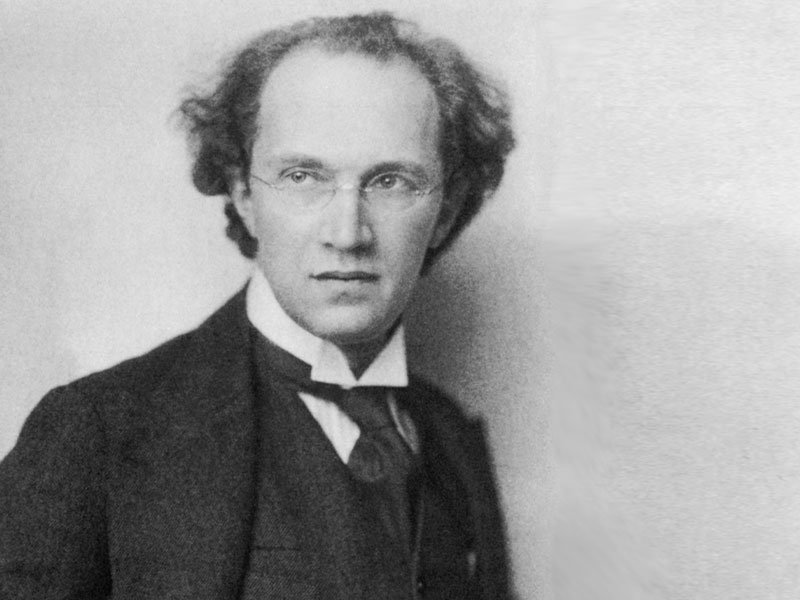- Portrait

Franz Schreker was a child of the fin de siècle. As such, his lush, expressive and sonorous music corresponded entirely to the indulgent attitude to life of the time. Born in Monaco in 1878 as the son of an Austrian court photographer, he came to Vienna – one of the most important, if not the most important, music centre in Europe – after his father's death in 1888. It was the city of Brahms and Bruckner, and everyone was dancing to the waltz sounds of a certain Johann Strauss. During Schreker’s studies at the Vienna conservatory, Alexander Zemlinsky and Gustav Mahler became influential musical figures in Vienna, and a new generation of composers formed around Arnold Schoenberg.
They all knew each other, met in the city's coffee houses and discussed the new cultural ideas. With the premiere of his opera Der ferne Klang in 1912, Franz Schreker rose to become one of the leading composers of his time. As a professor at the Academy of Fine Arts, he taught Ernst Krenek and Alois Hába.
Dreams, illusions, eroticism
His subsequent stage works, Die Gezeichneten (1915) and Der Schätzgräber (1918), made him the most frequently performed opera composer of his day, even ahead of Richard Strauss. “Opera is not an art form that can be approached with the intellect,” he wrote. “Nowadays, we have all become far too rational as intellectuals and are annoyed by everything that is not logically totally clear and undoubtedly recognisable, whereas the beauty and actual artistic quality of opera lies precisely in making artistically believable that which cannot be grasped intellectually.”
Again and again he emphasised that he drew inspiration from the subconscious – entirely in accordance with the new insights of Freudian psychoanalysis. Dreams, illusions, and the sensuous but simultaneously destructive play between man and woman determined the subjects of his operas.
On the sidelines
In 1920, he went to Berlin, where he became director of the Hochschule für Musik. The city, the centre of the Weimar Republic and the artistic avant-garde, was in the process of reinventing itself. The modern ideas of his students were often met with incomprehension; he criticised the “exaggerated addiction of our young people to originality”. But he saw how this young generation set the tone with its “New Objectivity”, while his music found less and less interest.
Because of his Jewish origins, he faced the restrictions of Nazi ideology as early as 1932, even before Hitler came to power. He lost his positions and his music was regarded as “degenerate”. Franz Schreker died in Berlin in 1934.
Biography
1878: Born in Monaco
1888: Death of his father and move to Vienna
1892-1900: Studies at the Vienna Conservatory
1906/07: Choral director and conductor at the Vienna Volksoper; founded the Vienna Philharmonischer Chor.
1912: World premiere of the opera Der ferne Klang, appointment as professor of composition at the Wiener Musikakademie.
1913: Conductor of the premiere of Schoenberg's Gurre-Lieder
1918: World premiere of the opera Die Gezeichneten
1920: World premiere of Der Schatzgräber; appointment as director of the Musikhochschule Berlin.
1924: World premiere of Irelohe
1932: Resigns as director of the Berliner Musikhochschule under pressure from the fascists; takes over master class at the Preussische Akademie der Künste.
1933: Forced into retirement by the Nazi regime.
1934: Death in Berlin.